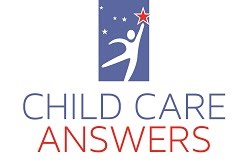July 16, 2012
Contact: Shara Drew (617-896-9368; shara@commercialfreechildhood.org)
For Immediate Release
Your Baby Can Read! Video Maker Shuts Its Doors
Children’s Advocacy Group Declares Victory for Families
BOSTON -- July 16 -- The company responsible for deceptively marketing the video series Your Baby Can Read! has ceased operating.
Last year, the Campaign for a Commercial-Free Childhood petitioned the Federal Trade Commission to stop Your Baby Can, LLC and its founder and spokesperson Dr. Robert Titzer from falsely claiming that their product would teach babies to read. The video series, priced at $200, encouraged parents to put infants as young as three months in front of screens and was advertised heavily on television. Five months after CCFC’s request for a federal investigation, TV advertising for Your Baby Can Read! stopped completely. The FTC is still investigating the company.
“By making grandiose promises, Your Baby Can Read! exploited parents’ natural tendency to want what’s best for their children,” said CCFC’s director Dr. Susan Linn. “But there is no evidence that screen media are effective for teaching babies anything—let alone a complex skill like reading. In addition to conning parents out of $200, the company’s false and deceptive marketing may have been putting babies at risk.”
Research has linked infant screen time to sleep disturbances, attention problems, and delayed language acquisition, as well as problems in later childhood such as poor school performance and childhood obesity. The American Academy of Pediatrics recommends no screen time for children under age two. If parents followed Your Baby Can Read!’s viewing instructions, their baby would have watched more than 200 hours by the age of nine months.
A notice at www.yourbabycanread.com informs visitors that “the cost of fighting recent legal issues has left us with no option but to cease business operations.” In addition to CCFC’s complaint, the company was the subject of an investigative piece on the Today Show and had been battling class action suits.
CCFC is still urging the FTC to take action, to send a message that such deceptive marketing will not be tolerated.
Dr. Linn added, “The Commission has in its power to force Your Baby Can to provide compensation for parents who were deceived, and to prevent Dr. Titzer from creating another company making similar false claims. Even more important, taking action will deter other companies from making deceptive claims about the educational value of screen media for babies.”
The Campaign for a Commercial-Free Childhood (www.commercialfreechildhood.org) is a national coalition that counters the harmful effects of marketing to children. CCFC is a project of Third Sector New England (www.tsne.org).








